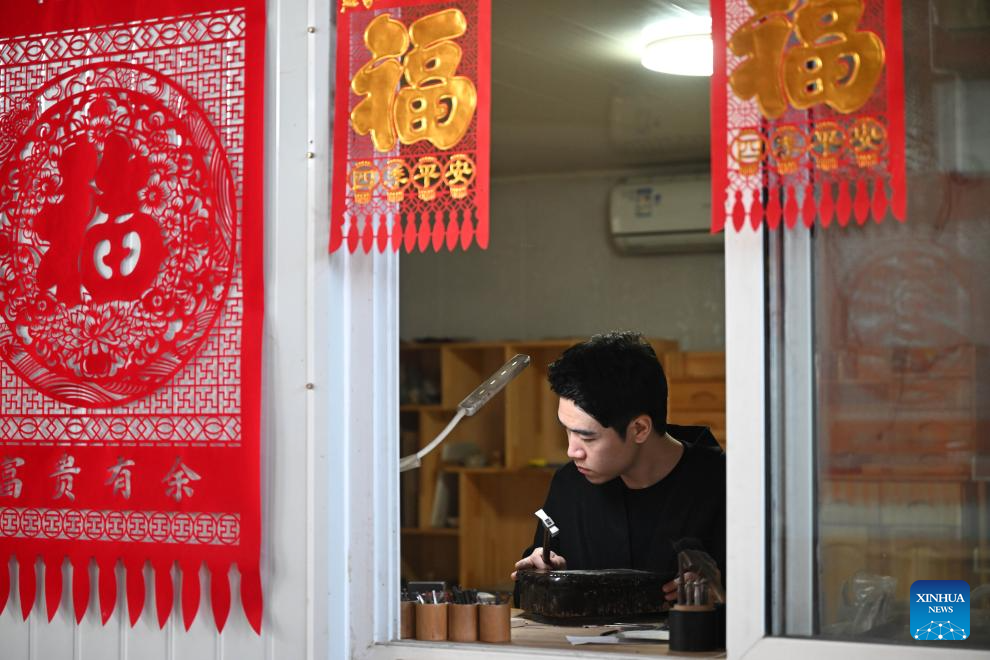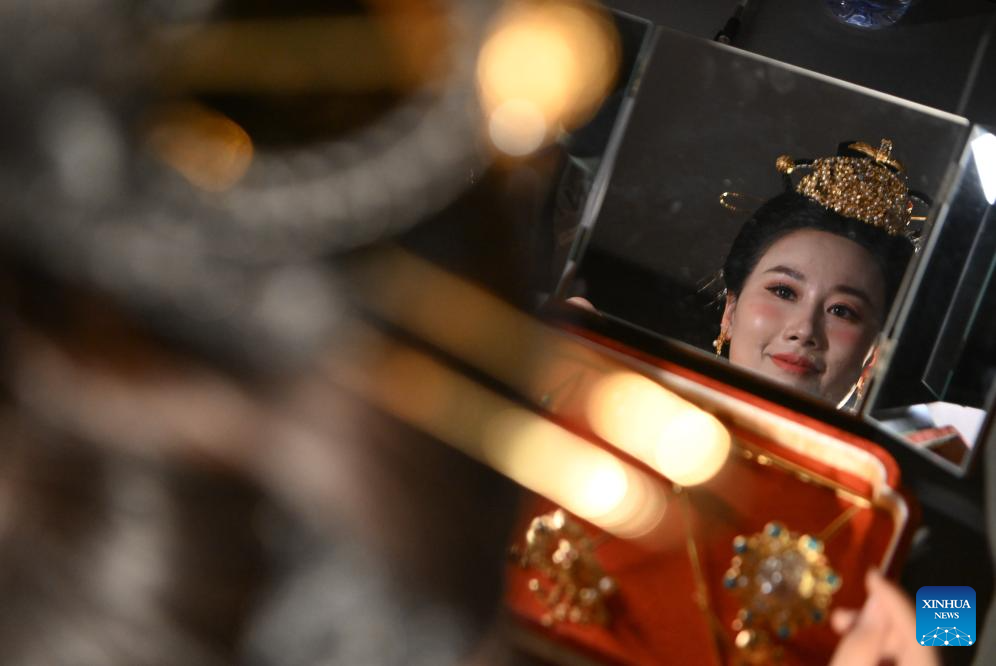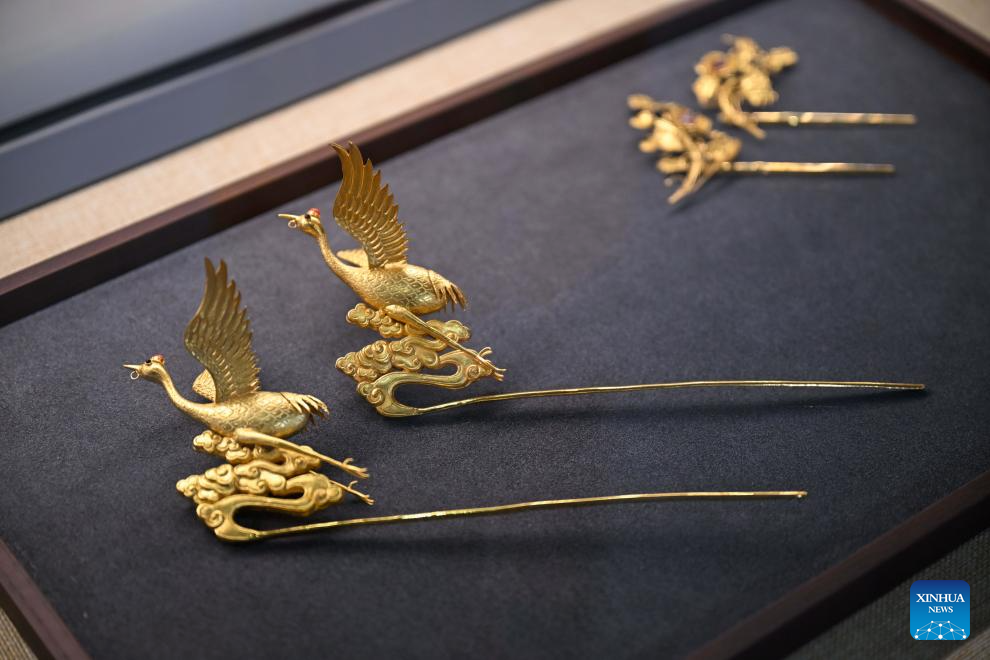inheritor of Ma's Filigree Mosaic art in Tianjin
From:XinhuaAuthor: 2024-05-09 15:56

Ma Sai makes a filigree mosaic artwork at his studio in Liuzhuang Village of Wuqing District of Tianjin, north China, March 19, 2024. (Xinhua/Zhao Zishuo)
Ma's Filigree Mosaic art, a city-level intangible cultural heritage in Tianjin, attracted the attention of the whole country when an accessory made with it appeared on the head of a Chinese actress during the Spring Festival Gala of the Year of the Dragon, staged by China Central Television, also called CCTV.
Filigree Mosaic art, first seen in the Spring and Autumn period (770 B.C.-476 B.C.), greeted its peak season in the Ming Dynasty (1368-1644). The craft, having a history of more than 2,000 years, goes through complicated procedures and was listed as a national-level intangible cultural heritage in 2008. Two main steps are involved in the craft, namely making filigree and making mosaic. Using malleable materials such as gold and sliver to make thin threads and then forming different shapes is called filigree art. Inlaying pearls or gems on shaped metal frames is called mosaic art.
Imparted by palace artisans for royal family, Ma's Filigree Mosaic art dated back to the late Qing Dynasty (1644-1911) to the 1920s. Ma Sai, an inheritor of the craft who was born in the 1990s, has been working in the field for over 14 years. "I like handmade work since childhood. I learned the art from my parents, who enlightened me during their daily work."
In the early time, Ma Sai's family made filigree mosaic accessories mainly for export. With the withering of foreign market, the craft was almost lost. Noticing the popularity of traditional Chinese culture, Ma Sai tried to apply this craft to the making of traditional Chinese accessories. People's enthusiasm for Hanfu, a traditional wearing during the Han Dynasty (202 B.C.-220 A.D.), brought new vitality to Ma's Filigree Mosaic art. "The popularity of Hanfu gave me the confidence to carry on the craft," said Ma Sai. He visited various museums, read lots of books, and gradually turned designed patterns into real products.
To promote the products, Ma released videos he shot and edited on the internet. He also opened accounts on new media platforms, where he shared products and craft and won popularity among young people. He also encountered his love during a Hanfu show. Min Fangping, deeply moved by Ma's efforts in carrying on the traditional art, decided to work with him at his studio to explore more possibilities.
Nowadays, Ma Sai's studio mainly makes accessories for the use of video props, head decorations of Hanfu and brides headdress in traditional Chinese weddings. His artworks win him fame in the circle for their delicacy and refineness. He enrolled a dozen of villagers in his studio, and also accepted an apprentice Ma Hongli who was born in the 1980s. "I hope more young people will join us, thus we'll create filigree mosaic artworks that belong to our time," said Ma Sai.

An enthusiast for Hanfu tries a head decoration of filigree mosaic at a studio in Tianjin, north China, March 7, 2024. (Xinhua/Sun Fanyue)

This photo taken on March 23, 2024 shows filigree mosaic artworks displayed at the Wuqing museum in Tianjin, north China. (Xinhua/Sun Fanyue)
Edit:董丽娜
The copyright of the article and the picture belongs to the original author. If there is any infringement, please contact to delete it